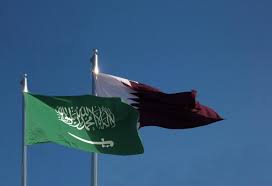By Paul Nicholson
January 5 – Saudi Arabia has agreed to lift its land and air blockade on Qatar in a major step towards ending a Gulf dispute that has been often been played out in the soft politics of football and football media.
A deal, brokered by Kuwait, was announced ahead of a Gulf Cooperation Council (GCC) summit where it is hoped to be rubber-stamped.
For football it could mean the end of a divisive dispute that has split not just the region but dragged in the rest of the football world, in particular over the piracy of high priced broadcast rights owned by Qatar’s beIN Sports in Saudi Arabia. That dispute has accelerated change (and not positively for football’s rights holders) in a sports rights market that was already splintering.
It also raises the prospect of political deal-making around the upcoming bids for the hosting of the 2027 Asian Cup, the blue riband national team event that AFC successfully expanded with its 2019 edition in the UAE.
Both Qatar and Saudi Arabia have submitted bids to host and will face stern competition from the world’s second largest nation India. If both Qatar and Saudi retain their bids, they would likely split the west Asian vote, most likely along wider political lines. The UAE and Bahrain were later joined by Jordan and Yemen in supporting the Saudi-blockade
The host for 2027 is expected to be appointed at the end of year. Before Christmas the hosting for the 2030 Asian Games was awarded to Qatar in a run-off against a Saudi bid. The Saudis were awarded the 2034 hosting rights.
One potential scenario for 2027 – depending on the progression of the friendship and trust between the nations – could be a shared hosting proposal. While Qatar will have all the infrastructure in place to host in 2027 (both venues and training facilities), Saudi Arabia are undertaking an infrastructure build as part of a wider initiative to improve and create world class facilities.
The Saudi-led blockade began in June 2017, with the Saudis accusing Qatar of meddling in their domestic politics and funding terrorist groups. Qatar denied the charges.
There were 13 conditions issued by Saudi Arabia to lift the blockade including the closure of Qatar’s Al Jazeera news network (beIN Sports was spun off from Al Jazeera sports), and ending military ties with Turkey and political ties with Iran. Doha denies.
For lifting the blockade, the alliance submitted a list of 13 demands, including shuttering the Doha-based Al Jazeera news network, ending Turkish military presence in Qatar and cutting diplomatic ties with Iran.
The reality is that there have been no winners coming out of the blockade but on the socio-political level of sports plenty of losers. Saudi Arabia have shown clear signs of wanting to be part of the global sports community and made overtures in that area, many of which have been rejected as distrust and suspected motives worked against them.
A resolution to the blockade would be a major step forward, especially if it came with the recognition of the issues around global sports copyright, and a reduction in the use of football as a battleground in the political dispute. Ironically, on a socio-political level, it could prove to be more beneficial in the long run to the Saudis than to the Qataris.
The GGC summit in Saudi Arabia will be attended by Qatar’s emit, Sheikh Tamim bin Hamad al Thani.
Saudi Arabia’s Crown Prince Mohammed bin Salman said that “the upcoming GCC summit shall be a summit to close the ranks and unify the stance and to enhance the march of the good and prosperity,” according to the official Saudi news agency SPA in a statement.
Contact the writer of this story at moc.l1714062626labto1714062626ofdlr1714062626owedi1714062626sni@n1714062626osloh1714062626cin.l1714062626uap1714062626


